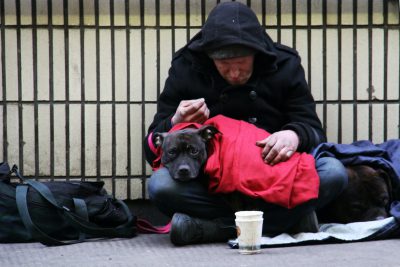Prophetic Trajectories of Hope from San Salvador to Liverpool
Read this article in the limited edition print version: order a copy here.
Wednesday 25 September was an extraordinary day in the life of Liverpool Archdiocese. After an all-day event where the themes of the Synod were presented to Synod members setting out the course for diocesan renewal, there followed an evening lecture which demonstrated that current developments are rooted deeply in diocesan history, in its devotion to St Óscar Romero and in the lives of three priests who lived their prophetic witness in this Archdiocese.
Under the auspices of the Romero Trust, and in Liverpool Hope University’s beautiful Capstone Theatre, David McLoughlin delivered a lecture titled ‘Prophetic Trajectories of Hope from San Salvador to Liverpool: A Celebration of the ministries of Oscar Romero, Austin Smith, Tom Cullinan and Kevin Kelly’.
In her introduction of the speaker, Pat Jones, herself a Liverpool prophet, spoke of how we had taken our three prophets for granted, assuming that what they taught and what their lives demonstrated was the norm. It seemed normal at the time because we saw it daily but now they’re gone, it’s clear just how extraordinary they were.
With an opening reference to Moses, one of David’s themes was that the ‘prophetic trajectories’ of all four men began with contact with the real lives of the faithful among whom they served and lived, requiring a struggle to loosen the grip of the background and training that had prepared them to have all the answers to the questions nobody is asking. In their radicalisation, all four were deeply affected by the cry of the poor, the ‘za’ak’ of scripture which is both the cry of grief and the lodging of a formal complaint.
As demonstrated by Pope Francis when he cited see-judge-act in Laudato si’, methodology that begins with experience has different results from that which begins with theory. This change of theological methodology – from starting with first principles to starting with lived experience – engages the heart as well as the head so that Romero’s episcopal motto ‘Sentir con la Iglesia’ expanded from merely ‘think with the mind of the Church’ to include ‘feel with the heart of the Church’.
Developing the insight that the Magnificat came from the meeting of Mary and Elizabeth, the first prophets of the New Testament, David pointed out that they were foreshadowing God’s bias to the poor as shown in the Beatitudes; the word ‘ptochoi’, translated in the Beatitudes as ‘the poor’, actually means ‘the destitute’. To illustrate how this changes attitudes and practice, he told the story of a poor woman telling hostile reporters that Romero was the first man who’d ever asked her what she thought and listened to her reply. He likened this to the ‘grace space’ around Jesus’s presence with those who connect with Him to this day.
Then as now, radical thought is a challenge. He noted how relevant the ‘Liverpool three’ are today because, in true prophetic style, they identified key issues ahead of the following pack: Austin Smith responded to race; Tom Cullinan to ecology; Kevin Kelly to gender. And all three to unjust structures, including within the Church.
Does our Church dare to point out the relationship between the stellar wealth of the minority super-rich and the growing poverty of the masses? Dare we lead on what might change things, a rediscovery and re-embracing of the vision of kinship and hospitality of Moses and the prophets so that we take the crucified people down from the cross? He quoted Austin Smith’s realisation that he must confront ‘any “not yet” in history which blesses or spiritualises ideologies and institutions which marginalise and oppress the powerless’.
David ended with a quotation from St Óscar Romero: ‘I ask all of you, dear brothers and sisters, to view these things that are happening in our historical moment with a spirit of hope, generosity, and sacrifice. And let us do what we can.’
Summing up, Pat said that their questions remain live now and challenge us to accept their prophetic mantle so that our diocese incorporates their insights into the Synod’s deliberations and recommendations. There is, she said, an ‘ouch’ as well as delight in hearing the challenge. We are the Church. Dare we engage with the prophetic imagination?




